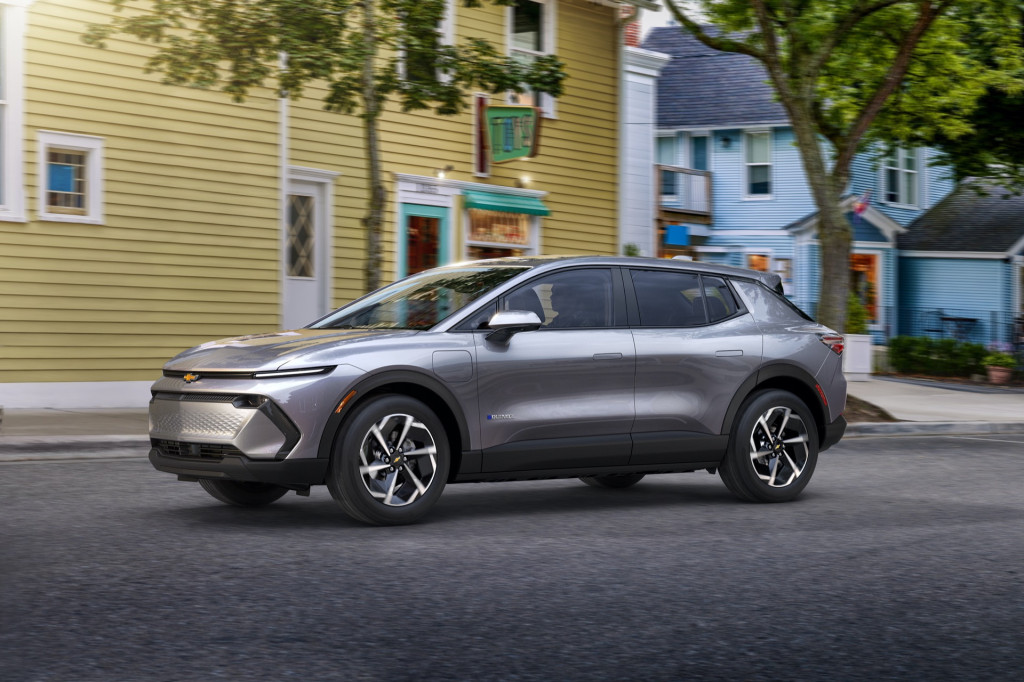In stark contrast to California, where EV sales have cracked 15% of the vehicle market, United States EV adoption remains sluggish in the middle portion of the nation. But a change could be underway, according to a recent report from S&P Global Mobility.
The 22 heartland states—essentially every state in the contiguous U.S. excluding the East, West, and Gulf Coasts—represented 27.1% of U.S. retail vehicle sales through August, but their share of EV sales has remained at 15.5% from 2021 into this year, according to the report.
"There is no doubt that the lack of charger availability is an influence in Midwestern states, but it is not the factor,” James Martin, associate director of consulting for S&P Global Mobility, said in a statement. “An equally strong factor is the availability of product in form factors that customers are willing to purchase."

2024 Chevrolet Equinox EV
Martin specifically mentioned a lack of affordable family EV crossovers. But some new crossover models, such as the 2024 Chevrolet Equinox EV, are scheduled to debut over the next few years. And while Hyundai simply doesn't offer its EVs in many heartland states, that's increasingly becoming an outlier position. Researchers also noted significant interest in EVs among heartland car buyers.
"More acceptance and much broader consumer awareness is resulting in a natural progression of adoption from the coasts to the heartland," Tom Libby, associate director of Loyalty Solutions and Industry Analysis at S&P Global Mobility, said in a statement. That seems to be backed up by another recent study, from iSeeCars, found that demand for used EVs, along with hybrids, plug-in hybrids, was soaring in rural America.

2023 Hyundai Ioniq 5
The buildout of the federal EV charging network—and all states' involvement—may play a role in catalyzing growth and interest. Convenience stores also think they can play a significant role by offering locations for EV charging in rural America.
Public charging infrastructure isn't of course the only factor at play. A recent study from charging firm Volta suggested that no matter which region of the country, the urban/suburban divide also plays a very significant role—mainly because home charger availability decreases for urban EV intenders.












